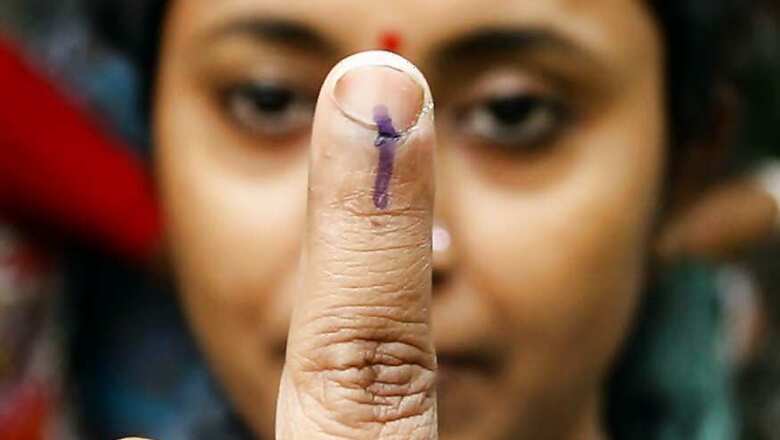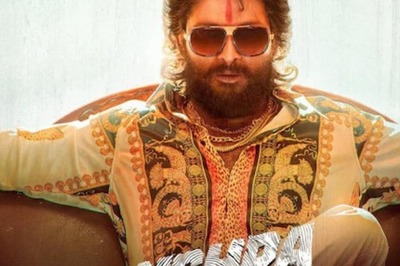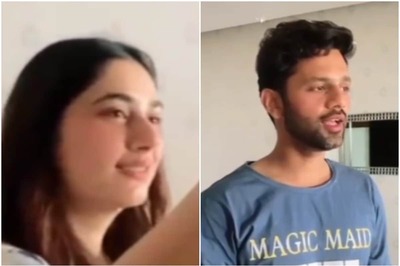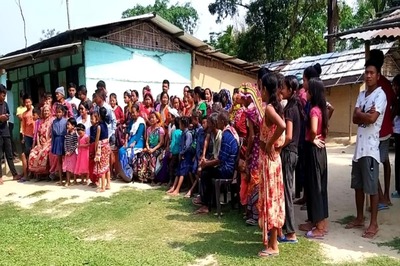
views
Bengaluru: Bengaluru may be India’s science, tech and innovation city, but in elections, the only thing that matters in the country’s third-most important city is the caste and religion of candidates.
The caste factor, which takes a backseat after polls, always becomes an important issue during every election. Be it Assembly or Lok Sabha elections or even corporation polls, caste decides the tickets for candidates. The Congress, BJP and JD(S) deftly play the caste card to win votes in the state capital.
The current Assembly election is no different from the previous ones and all three parties have carefully selected candidates keeping the caste arithmetic in mind.
The city has 28 Assembly seats in the city corporation or Bruhat Bengaluru Mahanagara Palike (BBMP) limits and has eight more seats in the outskirts. Except for 3-4 seats, caste or religion of the candidates has been the deciding factor in this election.
The ruling Congress has fielded Roshan Baig and Zameer Ahmad Khan from the Muslim-dominated Shivajinagar and Chamarajpet seats, respectively. Another Muslim MLA, NA Haris, is likely to get re-nomination from Shantinagar considering the fact that his constituency has a large number of Muslims and Christians.
Senior minister KJ George’s constituency Sarvagna Nagar also has a large number of Muslims and Christian votes, and the Congress fields only a Christian from there.
Basavanagudi, Malleshwaram, Jayanagara, Rajajinagara, BTM Layout, Byatarayanapura, Vijayanagara, Govindarajanagara, Mahalakshmi Layout and Yeshwantpur are known as ‘upper caste’ seats. All major political parties field only Brahmins, Vokkaligas or Reddys from these constituencies.
The Other Backward Classes (OBCs) also get the chance to try their luck from the seats where they are in substantial numbers. Scheduled Castes (SCs) contest from the seats reserved for them.
Many progressive citizens of Bengaluru have tried to break the stranglehold of caste in the city polls and have failed miserably in the past. Some of them had contested as Independents and lost badly because of no caste support.
“It is foolish to believe that caste decides everything in rural areas and that the big city people are above caste and religion. Actually, they are more casteist and back their religion in big cities. A closer look at the candidates proves one thing — no caste or religion backing, no chance even if you are the best candidate,” said Mathew Anand Paul, Bengaluru-based political analyst.
But well-known civic issues activist Ravi Krishnareddy disagrees with the theory. Ravi, a former state leader of the AAP and a US-returned technocrat, is contesting as an Independent from Brahmin and Vokkaliga-dominated Jayanagara Assembly seat in south Bengaluru.
Speaking to News18, he said, “Except a few seats, voters of Bengaluru are above caste considerations. They will definitely go beyond their caste and religion to vote. But the political parties have stereotyped it. They still believe that the people vote for their caste. It is a misconception and we want to change that.”
Dinesh Gundurao, four-time MLA from the city and working president of the state Congress, feels that a lot of people have moved away from caste and religion these days. “People vote for good candidates or at least who they think are good in many seats. Not all vote on caste lines. But caste also plays a role. It is a reality and we can’t escape from that,” he said.
Interestingly, Dinesh is one of the very few politicians who has actually proven that even without a major caste backing, one can win an election. The son of late chief minister R Gundurao and a Brahmin, Dinesh has won four consecutive elections from Gandhinagara Assembly seat in central Bengaluru. This seat has only a few thousand Brahmin votes and that has not come in the way of his successive victories.
The economic boom in Bengaluru has attracted millions of people from all parts of India in the last 25 years and many of them are registered voters in the city. Local politicians argue that these “outsiders” vote based on personal beliefs or ideology rather than castes as they don’t belong to any local castes or sects in Karnataka.




















Comments
0 comment